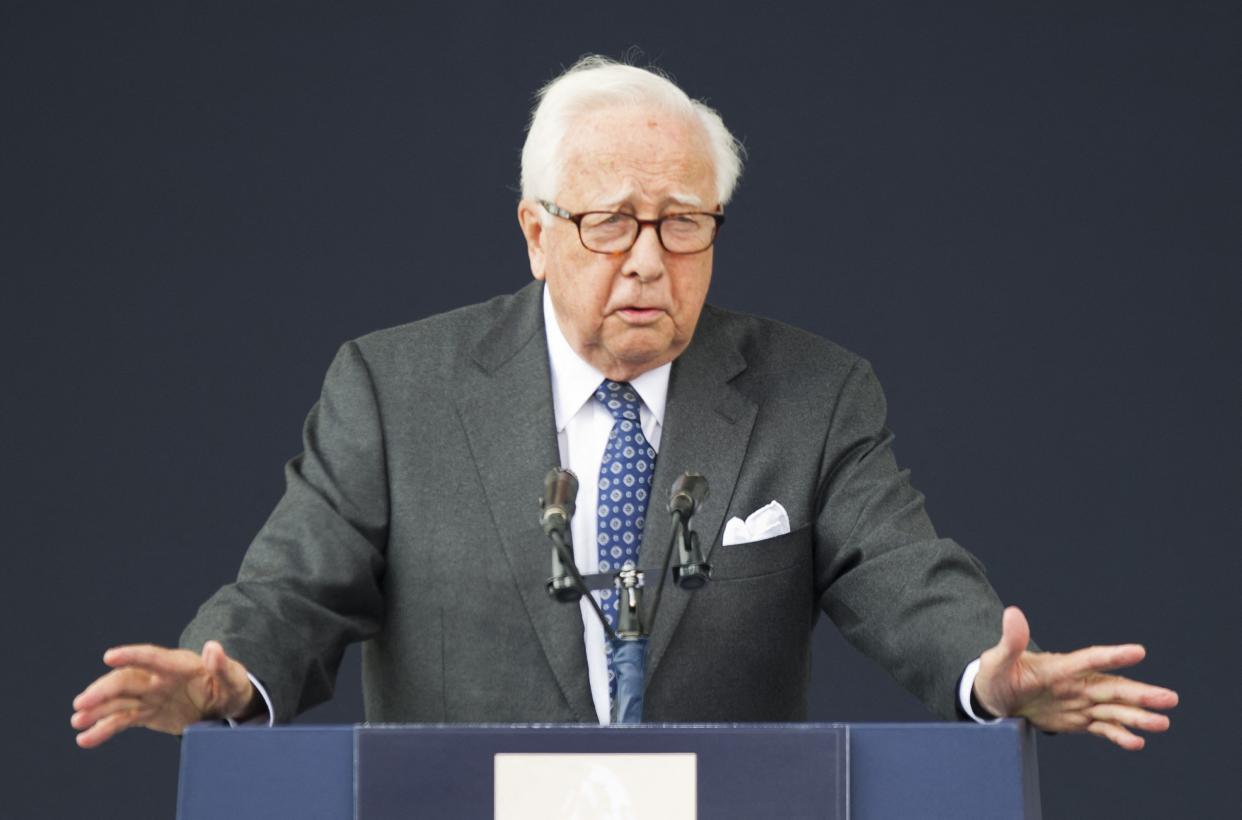David McCullough, historian and presidential biographer, dies
David McCullough, a historian and author of several acclaimed presidential biographies, has died at age 89.
The Pulitzer Prize-winning author died Sunday in Hingham, Mass. less than two months after the death of his wife Rosalee, according to Simon & Schuster, his publisher. The two married in 1954.
“David McCullough was a national treasure. His books brought history to life for millions of readers. Through his biographies, he dramatically illustrated the most ennobling parts of the American character,” Simon & Schuster CEO Jonathan Karp said in a statement.
McCullough wrote a number of influential books on a number of presidents, including John Adams, Harry Truman as well as books about the American Revolution (”1776″), westward expansion “The Pioneers,” the Brooklyn Bridge (”The Great Bridge”) and the Panama Canal (“The Path Between The Seas”).

Author and Historian David McCullough delivers the keynote speech during the opening ceremony of the National Library for the Study of George Washington in Mount Vernon, Virginia, September 27, 2013. (JIM WATSON/)
He also frequently appeared in historical documentaries, including Ken Burns’ “Civil War.”
McCullough won a number of awards during his career, including two National Book Awards for “The Path Between The Seas” and “Mornings on Horseback,” a biography of Theodore Roosevelt. He took home the Pulitzer Prize for “Truman” in 1992, and for “John Adams” in 2002. He was also given the Presidential Medal of Freedom in 2006.
McCullough was born in Pittsburgh in 1933 before majoring in English at Yale. He worked at the United States Information Agency, Sports Illustrated and the American Heritage Publishing Company before staking out on his own and writing his first book about the Johnstown Flood, a 1889 disaster that killed 2,000 people in Pittsburgh, which Simon & Schuster released in 1968.
He then set out to write the triumphant tale of the Brooklyn Bridge’s construction.
“That I knew little or nothing about civil engineering, that I had never done well in math or physics or had much interest in things mechanical didn’t deter me in the least,” he later wrote. “I was too excited. There was so much I wanted to know.”
With News Wire Services
